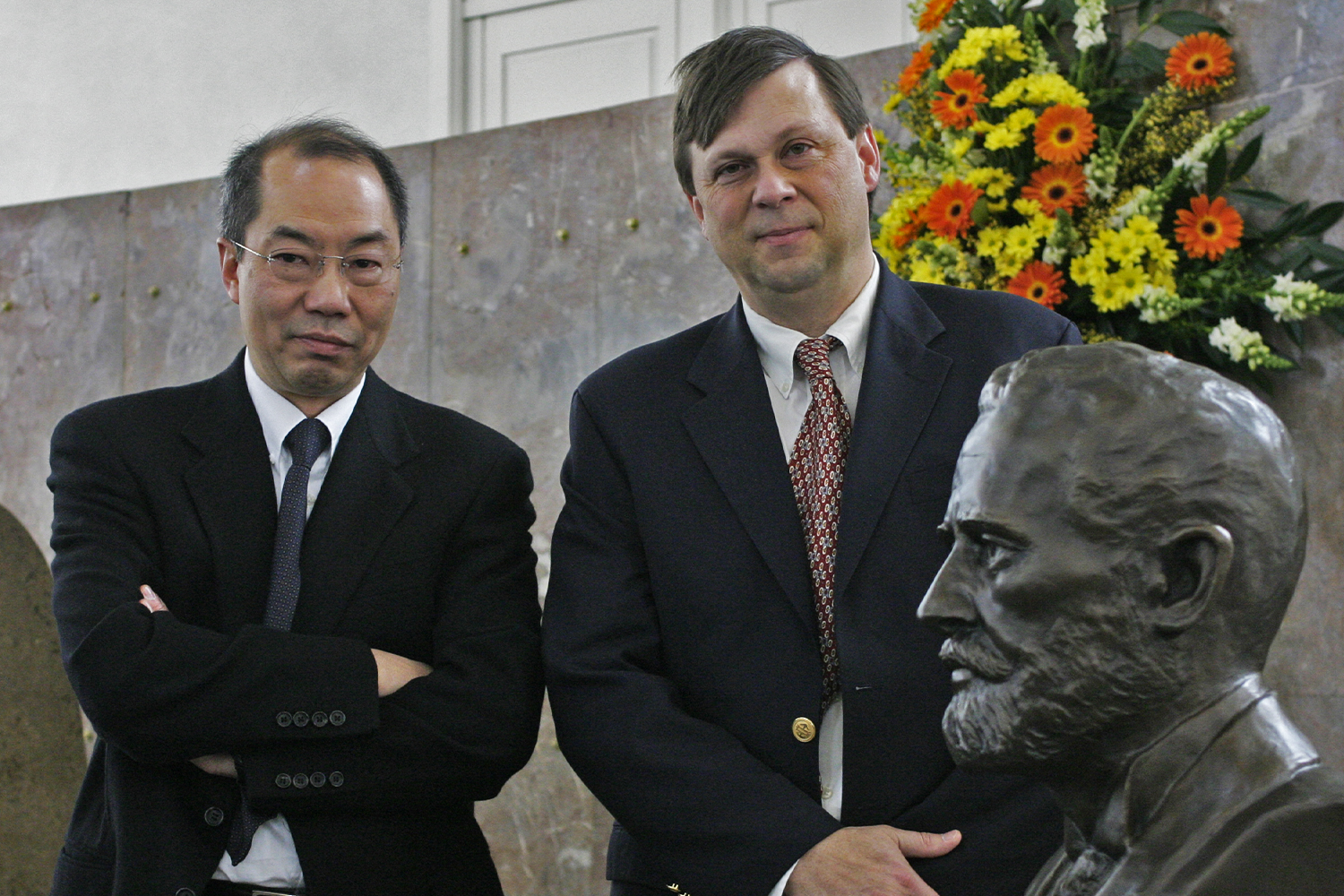- GU Home
- Paul Ehrlich Foundation
- Main Prize
- 2004_Mak+Davis


T cells play key role in specific immune response
An efficient immune system is essential to survival. If it fails, the result is almost inevitably death, usually due to serious and recurrent infections. The cells and molecules of this resistance system patrol constantly throughout the human body in search of health-damaging pathögens and other alien substances. They can recognize, track down and incapacitate a practically unlimited number of alien cells and substances. Moreover, they can "remember" each infection, so if it recurs they can respond faster and more effectively.
The specific, so-called "adaptive" part of our immune system consists of two arms: the antibody-producing B lymphocytes and the T lymphocytes. The B cells are the effector molecules of the so-called "humoral" immune response; for a specific immune reaction, they need the help of T cells. The T cells are responsible for the cell-mediated immune response; through T cell receptors they correspond with the antibody-producing immune cells, the macrophages, and the so-called "dendritic" cells, and thereby stimulate them.
Numerous researchers have spent many years trying to identify the molecules and genes responsible for the T cells' targeted defence response. It was considered certain that the activity of T cells is triggered through the T cell receptor on their plasma membrane as soon as it binds a specific antigen that matches it just like a key fits a lock.
Both prizewimers have done ground-breaking work in this area: Mark M. Davis "searched" for T cell receptor genes in T lymphocytes of mice, while Tak W. Mak used human T cell lines for his experiments. The starting point for their work was the idea that T cell receptors are only formed in T cells, but not in B cells. In a series of elegant experiments, Davis and Mak showed that T lymphocytes have their own genetic capacity to produce millions of different antigen-specific T cell receptors. The two scientists and their teams identified and sequenced certain T cell receptor genes. From their analysis of these genes, they were able to derive many structual details of the T cell receptor.
In other experiments, Mark M. Davis developed cellular and molecular techniques that made it possible to examine the antigen-specificity of T cells in tissue when T cells bind their specific antigens. Parallel to this, Tak W. Mak examined the importance of selective gene deletions -where parts of a gene and thus the genetic infomation it contains are removed - for the function of the immune system, and especially for T cells, with the help of so-called "knockout mice", in which the functions of certain genes have been deactivated.
CONTACT
Office Paul Ehrlich Foundation:
Friends of the Goethe University Frankfurt
Goethe-Universität Frankfurt
Campus Westend, PA-Gebäude
Theodor-W.-Adorno-Platz 1
60629 Frankfurt am Main
www.vff.uni-frankfurt.de
Managing Directors
Nike von Wersebe
Tel: 069 / 798 12234
Fax: 069 / 798 763 12234
wersebe@vff.uni-frankfurt.de
Julia Lange
Tel: 069 / 798 12452
Fax: 069 / 798 763 12452
E-Mail: lange@vff.uni-frankfurt.de
Adviser for Members & Foundations
Tina Faber
Tel: 069 / 798 17237
Fax: 069 / 798 763 17237
faber@vff.uni-frankfurt.de
Marketing
Constanze von Plato
Tel: 069 / 798 17237
Fax: 069 / 798 763 17237
vonplato@vff.uni-frankfurt.de
Science Communication
Joachim Pietzsch
Tel: 069 36007188
j.pietzsch@wissenswort.com
Bank Account
Paul Ehrlich-Stiftung
Deutsche Bank AG
IBAN: DE38500700100700083900
BIC: DEUTDEFFXXX
Donations are tax deductible.
- Studying at Goethe University
- International applicants
- Faculties
- Overview of study programmes
- Programme for refugees
- GRADE
- Goethe Business School (continuing education)
- Research at Goethe University
- Scientific news
- Goethe Welcome Center (for international researchers)
- Collaborative research projects
- Individual research
- Visiting fellowships
- Endowed chairs
- About the University
- News-in-brief
- University administration
- Campus locations
- Campus life
- University archives (German)
- Rhine-Main-Universities








